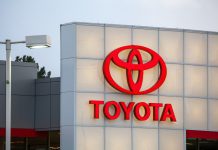According to the National Association of Minority Automobile Dealers (NAMAD), the number of minority franchised dealerships rose by almost 9% from 2020 to 2021. There were a little over 1,250 minority franchise dealers in 2020, and that number slightly increased to 1,366.
Since 2017, there has been a gradual rise in minority franchised dealers, some of which may be attributed to various automakers’ diversity and equity initiatives.
Here, we’ll break down the demographic data and look at what automakers are doing to support minority-owned dealerships.
There were increases across all minority groups — despite the pandemic
According to NAMAD’s data, all minority groups tracked in the study saw an uptick in franchised dealership representation. African Americans and Hispanic-Americans saw slight upticks (10% and approximately 3%, respectively). Native American dealer owners also saw an almost 3% jump. On the other hand, Asian American franchised dealers saw the most significant rise, from 299 to 361, resulting in a nearly 21% increase.
| Related: The driving force behind diversity in the automotive industry – Damon Lester, Pres. of NAMAD |
Luxury brands are the most popular among franchised dealers
In 2021, luxury brands were some of the most popular spots for minority franchise dealers. Jaguar, Land Rover, and Lexus rounded out the top three. With Hyundai and Genesis accounting for the fourth and fifth most popular brands for minority franchise dealer owners. Mini, Subaru, and Mitsubishi came in last in the ranking.
Jaguar Land Rover and Lexus have programs to support employee diversity and diversify customer bases. These efforts intend to make diversity efforts a priority, which could also impact their growing minority dealership representation.
Hispanic-American dealers led the way in representation
Approximately 81% of the brands tracked for the study have Hispanic American dealers as the largest share of franchised dealership owners. This group of dealers has emerged as the overall leader in franchised dealership ownership. While there are many reasons why this could be the case, this development could be attributed to the effectiveness of the National Hispanic Automobile Alliance (NHAA).
This program offers training and consulting to independent and franchise Hispanic dealers. Considering that Hispanic dealers have a significant representation in dealership ownership and continue to see gains in numbers, the NHAA’s efforts are likely a factor.
The NHAA’s impact points to how important it is for the automotive industry to continue developing DEI (diversity, equity, and inclusion) programs to promote minority franchised dealership ownership and contribute to their success.
Automakers make strides with DEI dealership programs
The good news is that automakers are developing programs to expand minority dealership ownership and provide them with the skills and tools needed to succeed. Ford’s Minority Dealership Association has a website that allows customers to search for and buy directly from minority franchise dealers.
They also provide performance consultation training and networking opportunities for minority dealer members. General Motors also has a minority dealership development program and offers a women’s retail network initiative meant to support female dealership owners and increase the number of women who own dealerships.
FCA, through Stellantis, has also taken strides to increase minority dealership representation. In 2020, FCA launched a website to recruit minority and female populations for dealer ownership. The program works alongside the Dealer Investment Program to match potential dealers to specific markets and provide financial support for minorities interested in stepping into dealership ownership.
Final thoughts
We’re continuing to move into a world where customer bases are becoming more diverse, and in turn, potential consumers care about how companies respond to this shift. Top Design Firms, a directory of design and marketing companies, found in a study that 34% of consumers consider a brand’s commitment to diversity and inclusion when deciding to purchase something. So, investing in DEI can benefit the bottom line and ensure that customers feel represented as they participate in the car buying experience.


Be sure to follow us on Facebook, LinkedIn, and TikTok to stay up to date.
While you’re here, don’t forget to subscribe to our email newsletter for all the latest auto industry news from CBT News.








